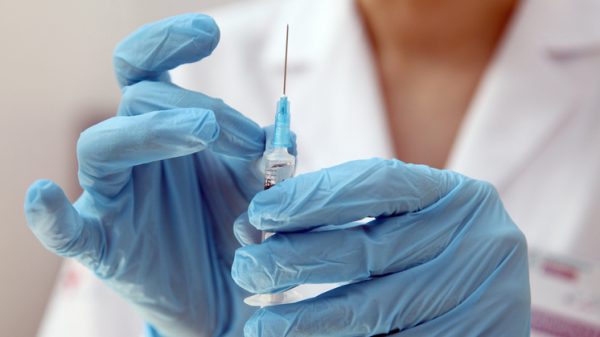Scientists involved in the UK’s first mass Covid testing trial, in Liverpool, have vigorously defended the use of rapid-result tests, following criticism from some health experts that they are too inaccurate to be helpful.
Speaking as the first official data was released from the mass-testing pilot, Prof Louise Kenny, the head of the faculty of health and life sciences at the University of Liverpool, said some of the negative discourse around lateral flow tests (LFTs) had been “unethical”.
Government figures from the mass testing programme in Liverpool revealed earlier this month that the tests missed 30% of cases with a high viral load and half of positive cases that were detected by standard coronavirus tests.
On Wednesday, the health secretary, Matt Hancock, said 116 local areas had now signed up for community testing, calling the rapid tests “extremely effective”.
In a briefing, academics said a quarter of the city’s half a million residents had been tested, with LFTs identifying a third of the 3,799 cases.
Kenny said there was no perfect test, and that “perfection should not stand in the way of the good”.
“There isn’t a magic bullet or a golden ticket, but what we do have is a very helpful, useful public health intervention,” she said.
“I think some of the discourse that we have seen in the last few weeks is really unhelpful, I would actually go as far as to say unethical and unprofessional, particularly as we are in the middle of an unprecedented public health crisis.”
The two tests that will help to predict spread of Covid-19
Read more
Sir John Bell, regius professor of medicine at the University of Oxford, said the lateral flow tests were a “central bit of good defence” against coronavirus because they were “fast, cheap and available for repeat use”, unlike the polymerase chain reaction (PCR) test, which is more accurate but has to be sent to a laboratory, delaying results for days.
As many people got asymptomatic Covid-19 – current government guidance suggests a third of infected people have no symptoms – every case caught by the LFTs in mass testing was a “win”, he said.
The newly published Liverpool data said that lack of access to online information and deprivation were major factors in suppressing testing turnout. A third of the city’s areas were considered deprived, and uptake there was half the average while the number of positive cases was three times higher, said Prof Iain Buchan, executive dean at the Institute of Population Health at the University of Liverpool.
“Fear of not having enough financial support in isolation was the biggest perceived barrier for testing,” he said.
Reflecting on the trial, he said: “The bottom line here is it used a rapid low-cost test that can be carried out anywhere to pick up two-thirds of most infectious people.
“The main conclusion I would draw is trust local communities to self-organise around the smart testing approach. It’s their livelihoods and their lives at stake.”























































Свежие комментарии